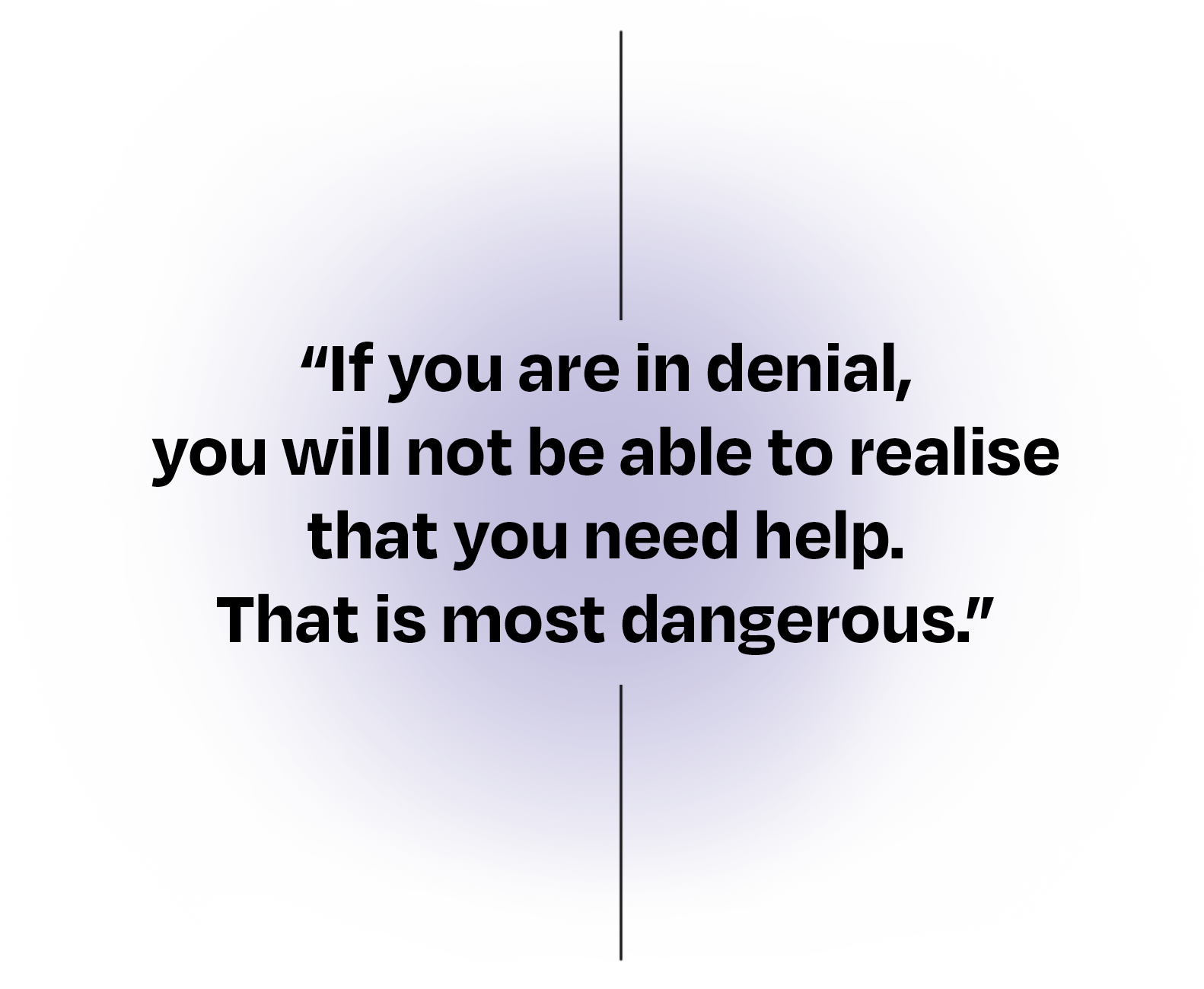Relationships

Studies & NS

Culture

I’ve been struggling with my mental health, but I’m hesitant to get help because of what others would think. I’m particularly afraid of how people in church would see this because I’m currently serving as a leader. Am I a bad or weak Christian if I have to seek treatment for mental health issues? Does struggling with mental illness mean there’s a problem with my faith or that I’m not good enough as a Christian?
It doesn’t show that you’re weak. It’s just that you need help.
After I had my second child, I plunged into postnatal depression. Thankfully, I told myself then: When I need help, I need help.
I have to admit it, talk to someone who I can trust, and believe that God is going to use the person to talk to me.
When I need help, I need help.
It’s not wrong to seek treatment or help. For some things like hormonal imbalance, you need medication.
Some emotional states can also be helped through counselling, even though they are medically certified as hormonal.
If there are people who are supportive enough to walk beside you, you can overcome it.
I do counselling for young children and I will say that emotional states can be helped; if they find the right person, they will be able to talk.
These children are looking for a way through, so they can get through it — counselling helps them to recognise the way and see possibilities and different perspectives.
You must be able to find someone. If you are comfortable, professional help is good.
But if not, this is where pastors can come in: as people who can help you through tough seasons, reshape your perspectives and journey with you continually.
It all depends on the kind of ministry you are involved in.
There are some ministries that can be very therapeutic, like our church’s rooftop farming ministry for example — you can go there to do some planting and see your plants grow.
But I do feel that for those with mental health issues, you will need to have a certain capacity in order to serve.
You may not be able to see what others are seeing or are troubled in because you have your own set of problems.

For example, when you are taking an aeroplane, in the event of trouble, the instructions are to help yourself first before helping your child.
Because when you have the oxygen mask, you can think clearer and know what to do for your child.
You can apply principle this back to emotional and mental health: If I am already struggling and yet don’t seek help, do you think I will be able to give the right advice?
If you know that you have a problem, it is better for the sake of your ministry, and for your own sake, to seek help first and handle it.
During that period of time when I suffered from postnatal depression, the only thing my senior pastor told me was that I had to stop serving for a while.
It wasn’t because I was no good but simply because I needed to deal with myself first.
So that was when I wasn’t allowed to pray for people in altar ministry. But it was only for about six months and once I had been cleared by him, I went back to it again.
No man is indispensable.
You can ask for a three-month break, before evaluating whether you are able to handle things better. If not, you can take another three more months.
Sometimes by moving away, you can see the picture better. I’m not saying that you should cut yourself off from ministry.
No man is indispensable, so just take yourself out for a while, begin to see and evaluate and reflect, then you may realise that some problems can be solved. This is what I call self-regulation.
I would personally advise them to be open, because the sooner you get help, the faster you can get out of it.
If you are in denial, you will not be able to realise that you need help. That is most dangerous.
When you are more open, it’s easier to help you to get back on track.
“No, I’m not wrong. No, I have no problem. No, I have no struggle.” It is people who think like this who will have problems, because they don’t see that there’s a need and they will not seek help.
So you shouldn’t keep quiet about it, and don’t deny the problem.
Even if you are serving in leadership, or are a pastor like me, it’s better that you go and seek help first than to bother about whether you will stumble people.
If you totally break down, isn’t it more stumbling? So don’t worry that others will judge you — the Lord sees. Be kind to yourself and get help.
In life, there are always ups and downs.
When you are down, don’t be discouraged — God hasn’t finished with you yet!